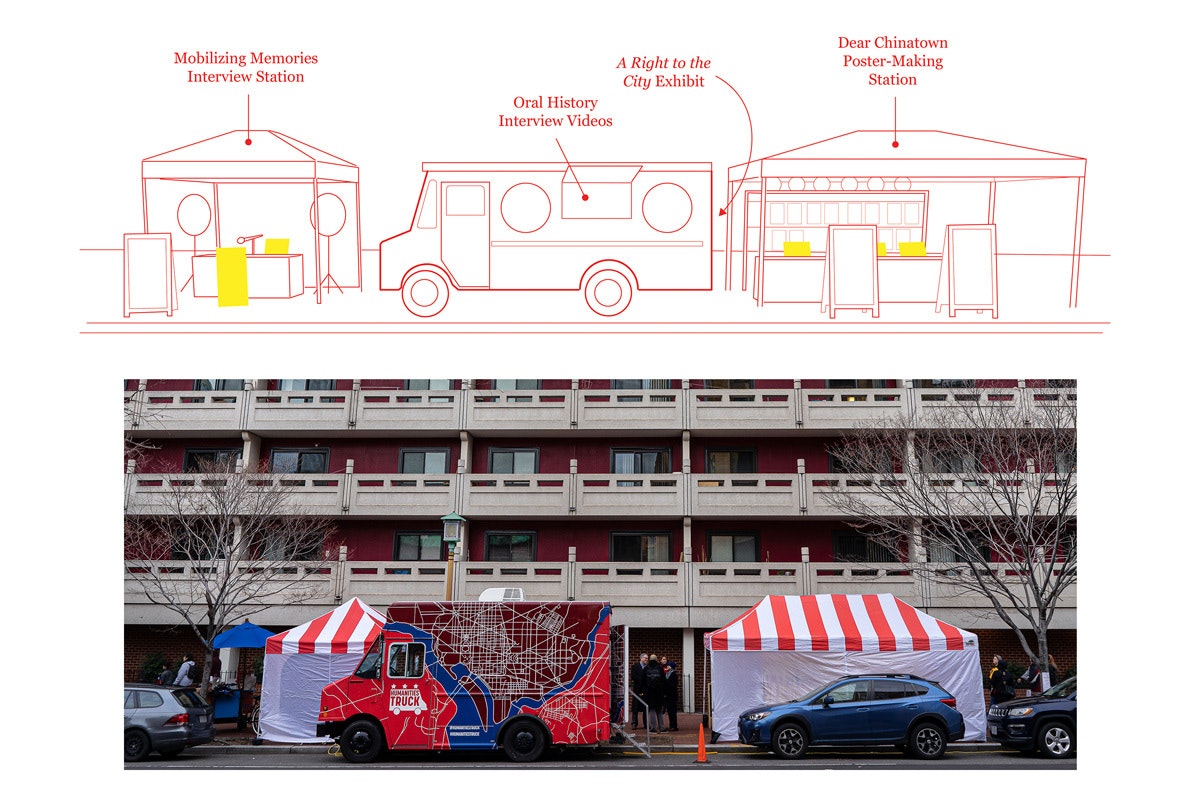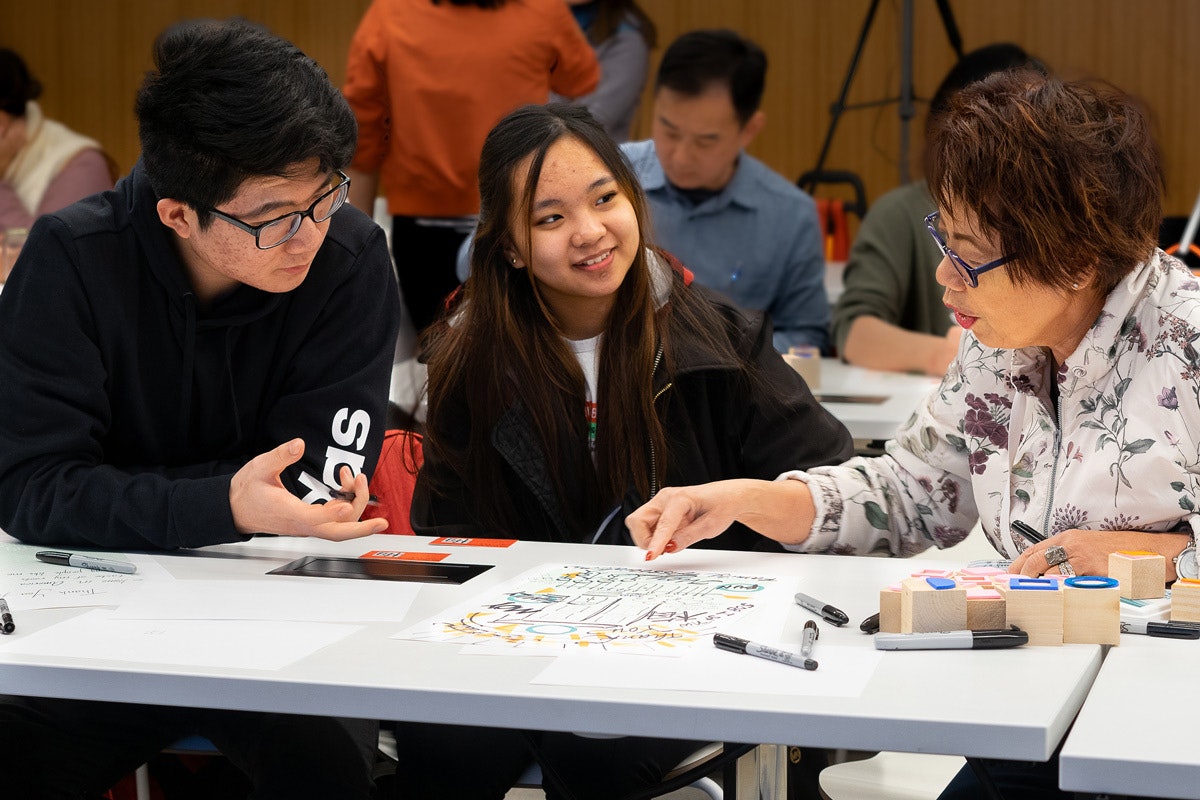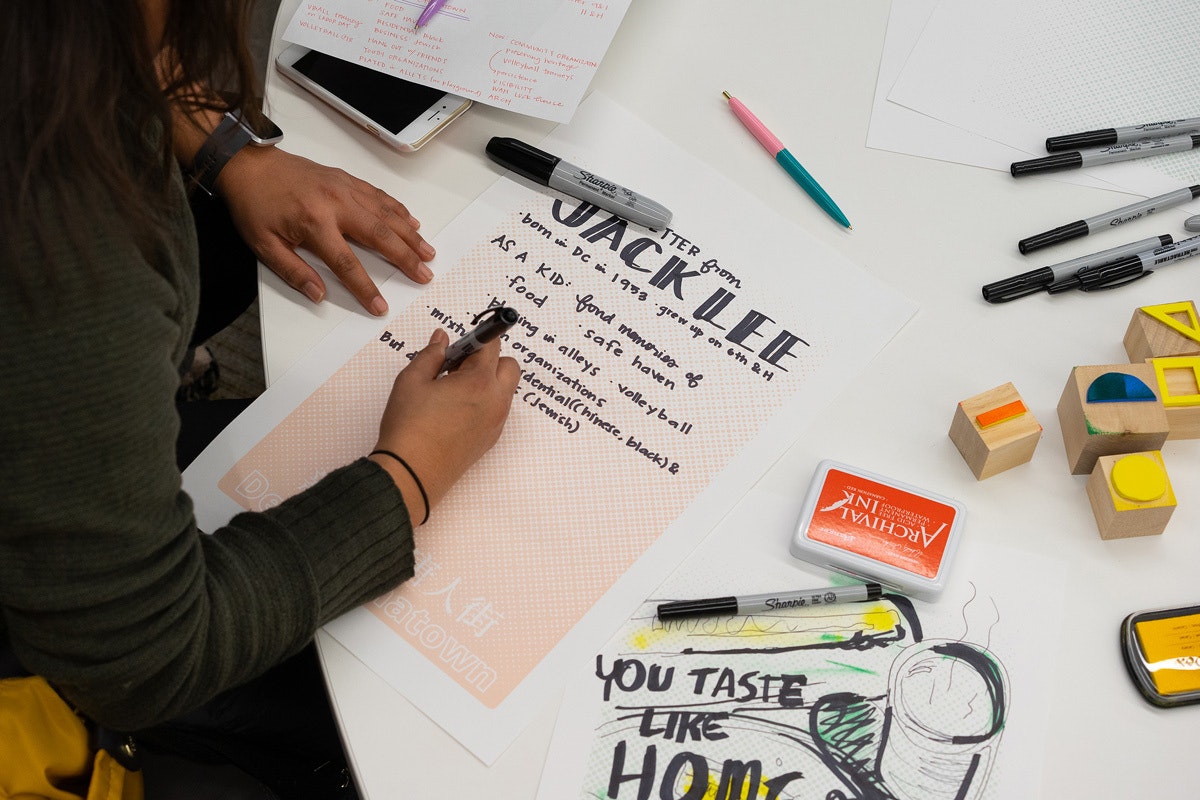Class of 2020 Spotlight: Jennifer Low (MDes ‘20)
When we think about gentrification and the issues that surround it, Jennifer Low (MDes '20) says we often assume they are inevitable, uncontrollable forces. But this is rarely the case.
For her thesis project, Low focused on the displacement caused by gentrification, the physical city as a place of learning, and how to make the intangible value of place in people's everyday lives more visible, especially to the architects and designers charged with reimagining those spaces.

"I’m hoping this sheds some light on the issue that there are tangible, yet incremental, steps designers can offer to amplify the work of long-standing community organizations and important neighborhood resources to contribute to resistance, solidarity, and strength against these forces," she says.

While her cohort focused on different problems related to disparities in K-12 education with community partners in Metro Detroit for their individual projects, Low's work centered on Washington, D.C.'s, Chinatown neighborhood — Low calls Washington home when she's not in Ann Arbor — and the lessons that come with interpersonal connections, sharing stories, and relationship-building.
Through her "Dear Chinatown" mobile making and sharing station, Low encouraged past and present residents to create poster-sized love letters during the 2020 Lunar New Year celebration to declare what most endears the neighborhood to them and why. Through words, sketches, calligraphy, poetry, and audio recordings, the project documented what the community most valued about the neighborhood. The idea isn't just to create display pieces, but also inspire new ideas for future proposals for change.
A landscape architect with 13 years of experience, Low has led design teams on projects for high-profile clients, including Amazon, Twitter, and New York's Lincoln Center for the Performing Arts. She chose MDes to continue her education at this point, because she was looking for a program that would let her customize her learning experience and "interrogate [her] design approach and role as a designer."

"Many graduate programs are still just trying to get students basic skills so they can get their first job, which is great if that’s what you need, but it wasn’t what I needed at this stage of my career," she says.
After working to identify problems and design solutions related to access to education over the last two years, Low says an obvious parallel between her previous and current work has been trying to make the "invisible" world we take for granted, whether it's our physical environment or our education system, more visible. To that end, Low says teachers are also natural designers, in addition to being "superheroes."

"They are constantly thinking about adaptability, flexibility, and inclusion," she says. "I learned a lot from working with them."
Seeing anti-Chinese and anti-Asian sentiments surge with the COVID-19 pandemic as she concludes her thesis research has been disheartening, but it's also strengthened Low's resolve for and convictions in her work.
"Many Chinatowns across the US, already vulnerable to the forces of gentrification, are now made more so in many more ways," she says. "That makes this work all the more important. The people that have worked hard to support their own communities have historically been made invisible in urban planning processes. A pandemic is not how I want it to happen, but I’m hoping that this makes the urgency more clear."